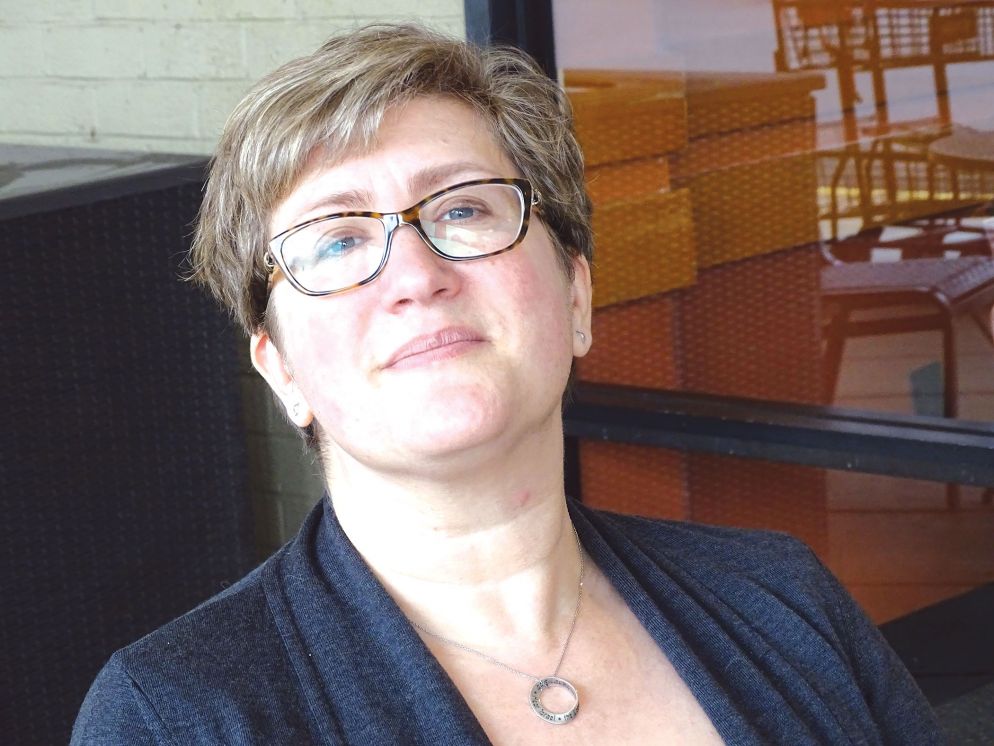Marnie Fienberg
Everywhere we turn, we hear about the rising tide of antisemitism, a story that almost seems to be writing an alternative version of who Jews are in America. When my mother-in law, Joyce Fienberg, was murdered at the Pittsburgh Tree of Life shooting, my own story changed dramatically, changed my family, my community. Gone was the comforting illusion of “it’s a problem in Europe, but not in America.”

This is especially important in the context of the upcoming Tree of Life shooting trial, starting right after Passover. The killing of a dearly missed member of my family and 10 other souls while they prayed is held up as the primary example of rising antisemitism in this country.
People have asked if I fear some form of retribution or additional attacks at this time against my family. There is something that they don’t know. When Joyce was murdered, her funeral and shivah were attended by thousands of people, many of them not Jewish.
There were letters and cards for a year coming in from both children and adults. This was not like Germany 1938 where the Germans turned away from their neighbors. Rather, our neighbors of all faiths and backgrounds circled the wagons. This protectiveness and support has continued at our workplaces, schools and most critically at our synagogue. This story of community is what I desperately wanted to share with others in my grief.
In December of 2018, I created a way to evoke this sense of community and foster allies. With the encouragement of many Jewish leaders and a great deal of research, I started 2 for Seder. The concept is simple: Invite two neighbors of a different faith (or no faith) to their first seder. While the project supplies participants with tips and a special kit for their guests, it’s all about the specialness of each Jewish family’s traditions. Of course, the Passover Haggadah is specifically designed for those hearing the story for the first time while encouraging questions.
In 2019, more than 2,500 families across the United States and Canada let us know they participated in 2 for Seder. The bond forged in this circumstance builds a bridge for discussion and understanding that lasts long after the last glass of wine has been finished. It’s the beginning of a road to creating allies in our own circles who will stand by you (as you will for them).
Recently I was on a panel instructing government staff to teach about antisemitism, along with a rabbi and a Jew of color. As we talked about our experiences online, each had experienced antisemitism, but there was a difference in our experiences. As someone who was directly impacted by the Tree of Life shooting, online supporters of my 2 for Seder project are protective. When there is an antisemitic comment made on the project’s social media, my followers (both Jews and gentiles) step up and respond. This is more powerful than anything I could ever say, but sometimes an additional thing happens — a conversation begins. When given an opportunity, people who are not Jewish are quick to say that antisemitism and hate have no place in our society.
This Passover, I encourage every Jewish person holding or attending a seder to take a moment and consider inviting someone of a different faith, a friend, a coworker, a teacher or a neighbor. What would happen if they knew a little bit more about Judaism? Could a joyous Jewish experience that is designed to help them ask questions break through a wall of politeness? Is there an opportunity to build a bridge?
This year it’s particularly important for building allies. Many people aren’t aware that the Tree of Life shooting trial will begin soon, with jury selection at the end of April. This federal trial focuses on the shooter’s hate crimes as well as murderous rampage. The prosecutors are seeking the death penalty. While it is unclear if the mainstream press will be following the trial, it may be a rallying cry for antisemites. Instead of ceding ground to hate, we can discuss our own narrative of our own story, a rallying cry for Jews to express support and solidarity with each other, and to reach out to neighbors. Each of us has an opportunity to reach out and let them know it’s OK to inquire and perhaps learn more about how they can make a difference, too.
Marnie Fienberg is a longtime resident of Northern Virginia and the founder of 2 for Seder. She can be reached at [email protected].





